Alex (not real name) got a new job and moved to a new city in early 2018. He considered himself one of those Nigerians who “hardly get sick”. But this changed in 2018. He suddenly fell ill and needed medical attention. He searched and visited one of the private hospitals used by his employer’s Health Maintenance Organisation (HMO). He decided to use a private facility, despite having friends in various public health centres located in the city.
Ahead of the 2018 general elections, Nigeria Health Watch conducted a citizen’s perception survey in partnership with NOI Polls. The survey polled 1000 respondents across the country on their level of confidence in Nigeria’s health system and sought to find out if citizens consider health when they vote for candidates. Twenty-six percent felt confident in the health system, 30% felt somewhat confident while 44% didn’t feel confident at all.
Both Alex and 44% of Nigerians have something in common, a lack of confidence in Nigeria’s health system to take care of them. This lack of confidence is even greater when it comes to accessing public health centres, and most Nigerians who can afford it often opt to access care at private health centres.
But there are exceptions as the Federal Medical Centre (FMC) Ebute Metta in Lagos State may well convince Nigerians that public health centres can still be trusted to deliver quality healthcare.
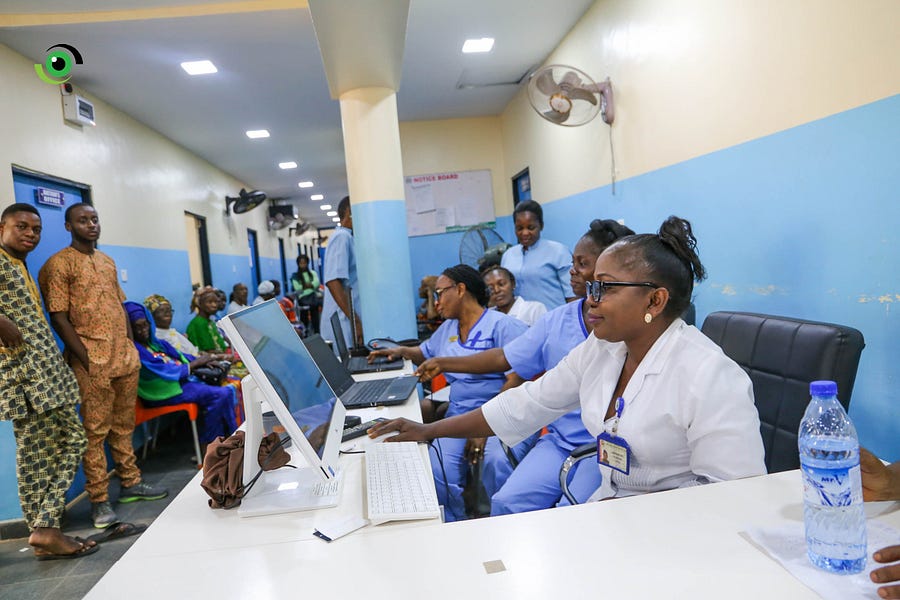
Pillars of excellence
Chief Medical Director (CMD), Dr Adedamola Dada took over leadership of FMC Ebute Metta in July 2017 with four distinct areas he wanted to significantly improve in mind. They are:
- Improvement of human capital development and staff motivation
- Infrastructural improvement and expansion of services
- Improvement in finances, transparency and partnerships
- Improvement in quality of care and service
These were bold and ambitious goals, but he had a simple belief — that country-wide change can only happen when “people who have the passion and capacity come forward to serve.” One of the reasons Nigerian doctors emigrate to other countries, according to this survey by NOI Polls and Nigeria Health Watch, is exactly the first area Dada wanted to improve at FMC Ebute Metta: human capital development and staff motivation.
Dada and his team setup a system that rewarded hard work and ensured staff are well motivated. He shared an important insight that helped achieve this. “I recognise that in every system, there must be rules and when people fall short of them, then a robust disciplinary process, that is also very fair and just, can and should be applied,” he said.
Improving the infrastructural deficits in the facility required finance and Dada knew this had to be generated internally. His team set up an electronic medical record system, which helped stop diversion of funds by some staff members, he said. They were then able to increase the revenue generated and this made funds available to revitalise the hospital.
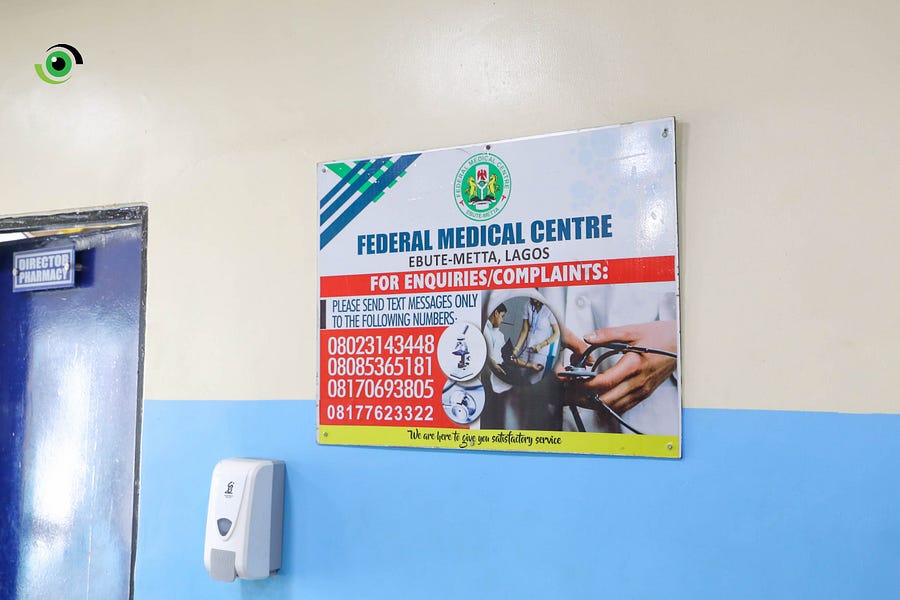
A 360 degree improvement at FMC Ebute Metta
“Whatever you are seeing now is the new FMC,” Mr Ayoola Olorunfemi, the Head of Corporate Services, declares as he proudly shows off different departments and explains the work they have put in place to bring change. The improvements have happened across the length and breadth of the hospital. “The hospital started as the old railway hospital in 1964 before becoming an FMC in 2004. Most of the structures were old and dilapidated,” Ayoola said.
The work started with installing a digital health system. When a patient visits the hospital for the first time, they are issued a digital card that resembles an ATM card. Every transaction from then on is done with the card — payment for consultations, and payment and access to laboratory, radiological or pharmacy services. Once the patient gets to any of these points, all they need do is present their card, which is swiped, and their details are displayed on the computer screen for further assistance.
At the dialysis section, an attending nurse explains that the department runs competitive services with the help of specialists and other support staff.
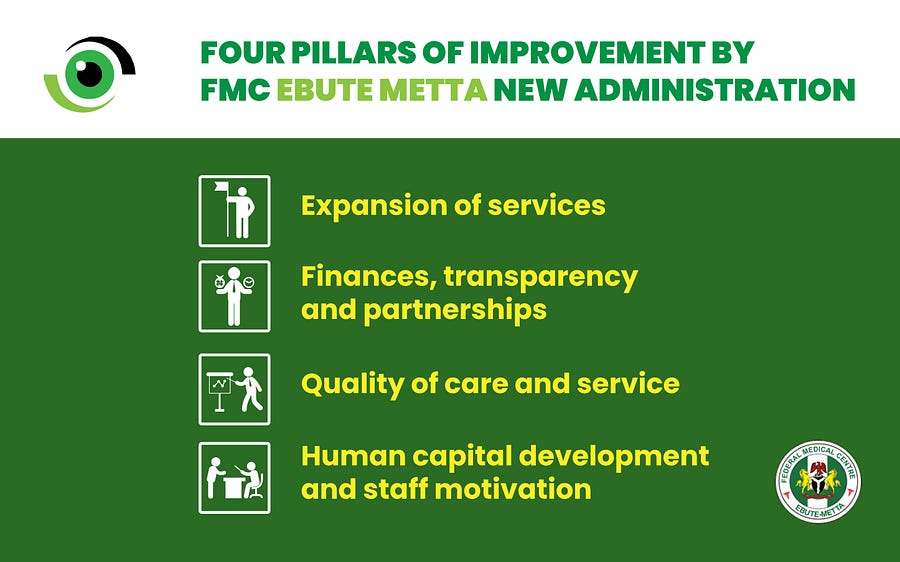
The facility’s chief engineer, Ezekiel Adenigba said they generate more oxygen than they can consume. Previously they could not generate enough to serve their patients, but they have installed an oxygen plant that can generate 60 cylinders every 24 hours compared with the former that struggled to generate 16. The hospital now sells the excess oxygen to other hospitals, generating revenue.
If you visit the family planning/immunisation unit, you are sure not to spend more than 35 minutes. “We received a clear mandate from the CMD and the SERVICOM people and this was to ensure our patients are out by 11am,” says the officer in-charge, Mrs Folake Adebayo. The well organised unit has sections for different purposes — group counselling, private counselling, and an insertion room. Wednesdays, Thursdays and Fridays are immunisation days, while Mondays and Tuesdays are for family planning services, Adebayo said.
As at 2pm, the General Outpatient Clinic (GOPC) was already done with the 96 patients that visited that day. On some days, the staff nurses say they can attend to over 159 patients during the morning shift. Unlike most hospitals, they operate a two shift GOPC which ends by 8pm. Despite the number of patients, they still attend to them in record time with the help of the 11 doctors currently working in the unit. One thing that helped make this possible is the Electronic Medical Record (EMR) system. It reduced patient wait time because it saves the time spent looking for and moving around patient files and records.
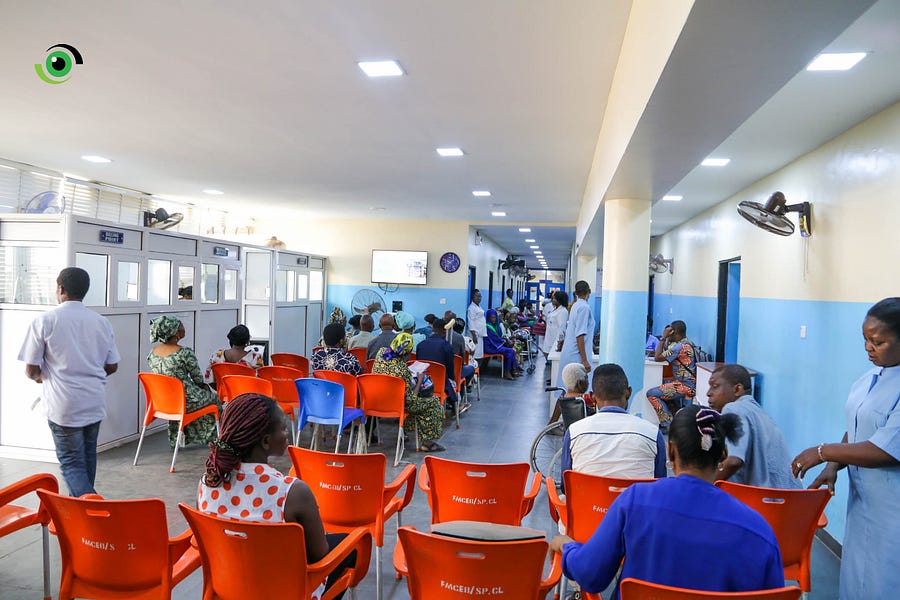
All units have gone through extensive facelifts. Ayoola explained that one strategy that helped the hospital achieve this are the public private partnerships they have in place with various organisations. This seems to be working effectively as staff are focused on delivering their best possible care. He added that the hospital also has an infection prevention and control committee that ensures that the environment is always safe for patients and care providers.
There are instances where patients are unable to pay for healthcare, but the hospital’s first focus is to save lives, Ayoola said. After a patient is seen, the social unit takes over to ratify payments and, in most cases, fees are either highly subsidised or waived entirely. Ayoola said the hospital also generates revenue from private wards which offer premium services and these funds help subsidise for people who can’t afford to pay.
Not relenting, but moving forward
Good work hardly goes unnoticed, especially with the ease of sharing information on social media. The hospital received commendations from Nigerians when pictures of the developments happening surfaced online. Two reputable media organisations even went on their own fact-finding mission to verify the claims and from their reports, it’s evident they weren’t disappointed.

But the best evidence of the impact of the efforts always come from patients such as Winifred Otokhina who said she has been using the hospital for over 10 years. When asked to rate the quality of service she is receiving, she said “80% because of the care, the hospital environment and automation in place”. She also said there’s been “tremendous changes” over time since she has been receiving healthcare from them.
While it’s obvious no system can ever be 100% perfect, this patient’s rating shows there are still opportunities for improvement as the hospital strives to deliver quality healthcare. While technology can be an important enabler of positive change, it can also be a deterrent, especially when there is network downtime. This means the IT unit must be on top of their game to provide uninterrupted services. They also have to ensure all staff are IT compliant in order to maximise the potential of the EMR System.
While there may not be a one-size fits all approach to effectively leading big public health establishments, it’s very important for potential leaders to adequately prepare before taking up such major responsibilities. Tailored executive trainings on leadership and patient centred care can help prepare them and their team for these roles especially those transitioning from clinical practice.
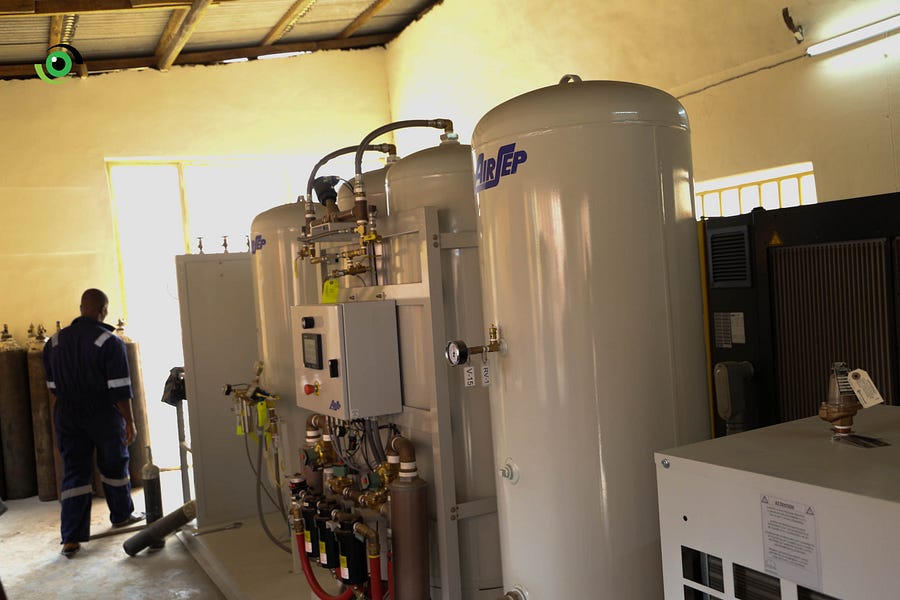
Everyone seems to have forgotten the crisis at FMC Owerri five years ago that led to numerous strike actions and even physical confrontations. While a lot of sides gave their reasons, it was probably a resistance to change or failure of leadership to effectively communicate visions and get buy-in of staff members.
There are important lessons to learn from Dr Dada and his team as change management is not easy. Health care leaders and indeed every leader must learn how to sell their vision in order to face minimal resistance from the people they are leading. This way, they can continue building and leading health facilities that Nigerians like Alex will be more confident to use.
Do you know a federal or state health facility that offers good service? Tell us what you liked about their service on our social media platforms, @nighealthwatch on Twitter and @nigeriahealthwatch on Facebook and Instagram.


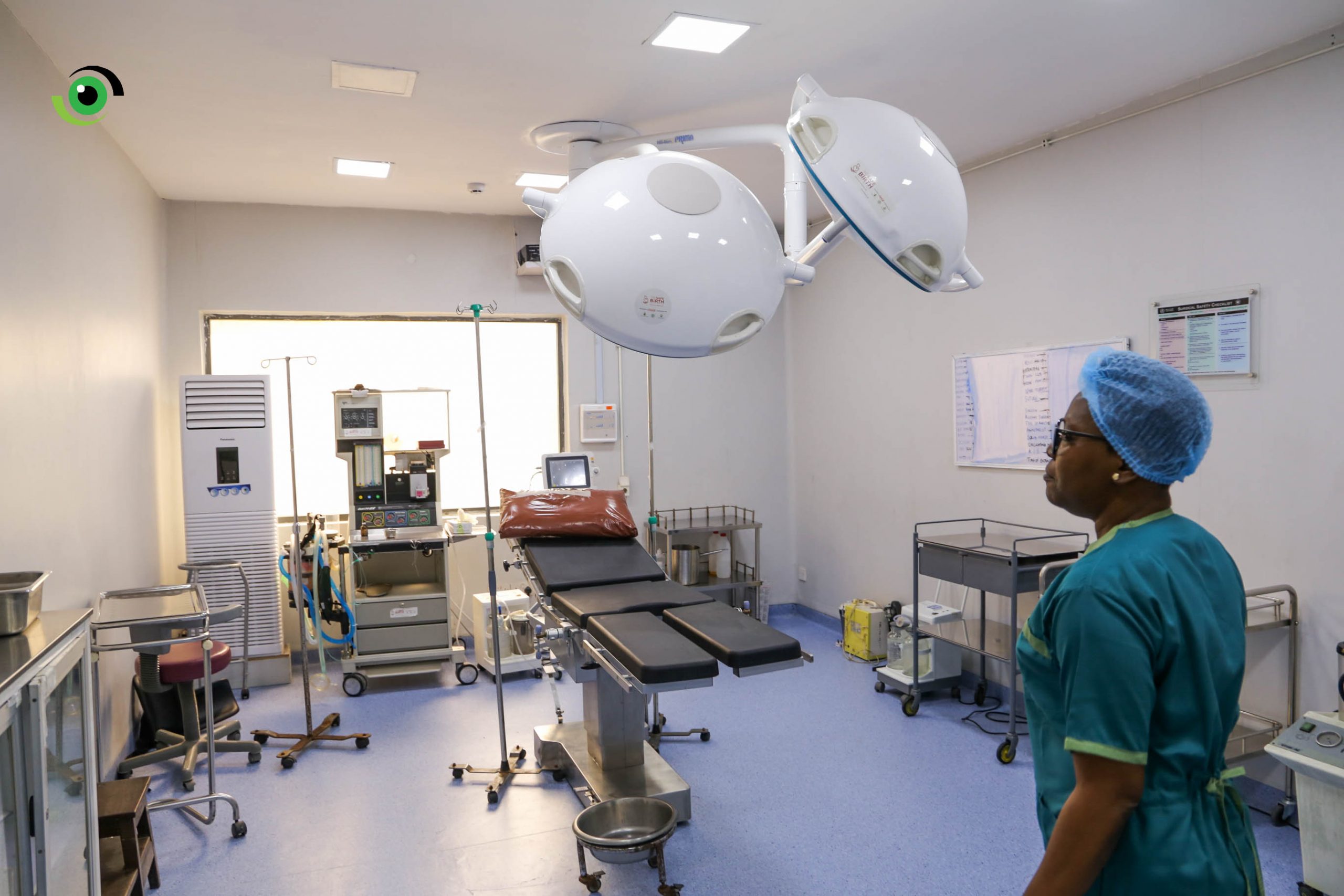
FMC Ebute Metta
Excellent write up which demonstrates an end result. A full analysis of the qualities of human beings who ensured the success, the steps they took, the detailed analysis of the challenges faced, how these were overcome; these would be quite useful in making this a scalable model.
What a happy and enthralling read. Wish many other health facilities in the country could qualify for such an exhilarating write up. I agree could be made a scalable model.
Keep it up FMC Ebute Metta.
Nimi Briggs
Professor Emeritus.
This is what happens when we have a champion of the health system that is dedicated to make a change. We need more more of these dedicated, unselfish, transparent medical providers in each of the country’s health facilities. It starts somewhere and FMC Ebute Metta is leading the way. It takes the whole team, from the cleaners to the nurses to the physicians to the administrators (everyone) working honestly and selflessly together to deliver good health care.
Thank you CMD, Dr. Dada for making us proud here in Virginia.
What a happy Nigerians may God continue to protect all the health workers in Nigeria doctors nurses may God protect you all I am very happy to see this
Dr Dada and his team are doing an excellent job!
Keep it up! Dr Dada. Known as a trailblazer from NARD era
I recently heard about the exploits of Dr Dada and the FMC Ebute Metta team. I am totally inspired and grateful to see that they have continued to grow. Keep it up!